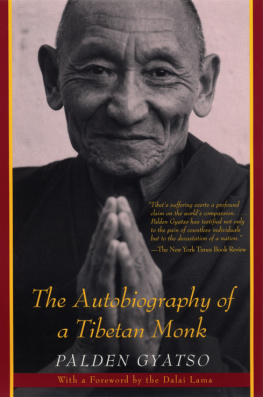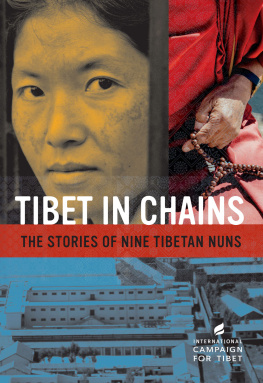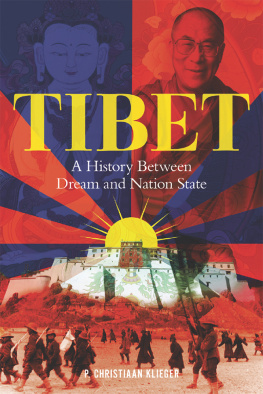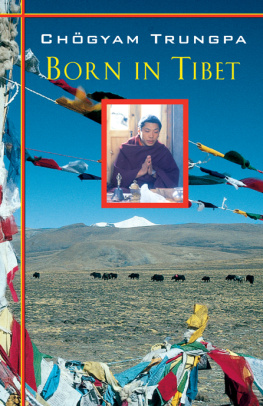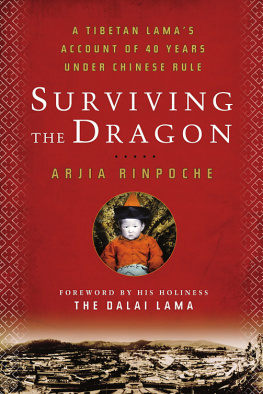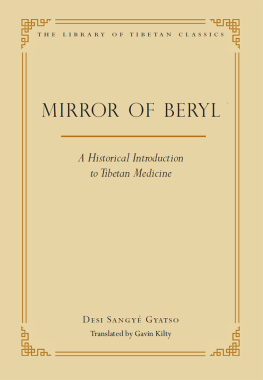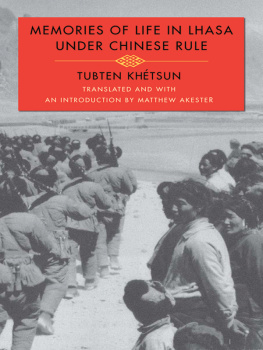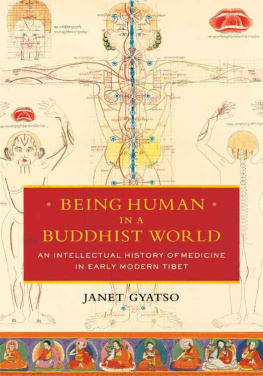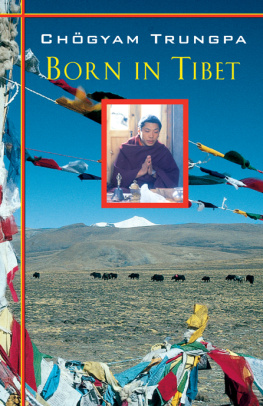
THE AUTOBIOGRAPHY OF A TIBETAN MONK
Palden Gyatso
with Tsering Shakya
THE AUTOBIOGRAPHY
OF A TIBETAN MONK
Foreword by the Dalai Lama
Translated from the Tibetan by Tsering Shakya

GROVE PRESS
NEW YORK
Copyright 1997 by Palden Gyatso
All rights reserved. No part of this book may be reproduced in any form or by any electronic or mechanical means, or the facilitation thereof, including information storage and retrieval systems, without permission in writing from the publisher, except by a reviewer, who may quote brief passages in a review. Any members of educational institutions wishing to photocopy part or all of the work for classroom use, or publishers who would like to obtain permission to include the work in an anthology, should send their inquiries to Grove/Atlantic, Inc., 154 West 14th Street, 12th Floor, New York NY 10011.
Originally published in Great Britain by The Harvill Press
English translation copyright 1997 by Palden Gyatso and Tsering Shakya
Maps by Reginald Piggott
Printed in the United States of America
Library of Congress Cataloging-in-Publication Data
Palden, Gyatso.
[Fire under the snow]
The autobiography of a Tibetan monk / Palden Gyatso, with Tsering Shakaya : foreword by the Dalai Lama : translated from the Tibetan by Tsering Shakya.
p. cm.
Previously published : London : Harvill Press, 1997 under title: Fire under the snow.
ISBN-10: 0-8021-3574-9
ISBN-13: 978-0-8021-3574-2
eISBN: 978-0-8021-9000-0
1. Palden Gyatso. 2. LamasChinaTibetBiography. 3. Political priosnersChinaTibetBiography I. Tsering Shakaya. II. Title.
BQ978.A45A3 1997
294.3'923'092dc21
[B]97-39679
Grove Press
an imprint of Grove/Atlantic, Inc.
154 West 14th Street
12th Floor
New York NY 10011
Distributed by Publishers Group West
www.groveatlantic.com
06 07 08 09 10 15 14 13 12 11 10 9 8 7 6
Contents
List of Illustrations
Foreword
by the Dalai Lama
Palden Gyatso's testimony is one of the most extraordinary stories of suffering and endurance. He was arrested when he was a twenty-eight-year-old monk, in the early years of the Chinese occupation of Tibet, and was not released until 1992, when he was nearly sixty.
During his thirty-one years in prison, Palden Gyatso endured torture, virtual starvation and endless sessions of thought reform. Nevertheless, he refused to give in to his oppressors. That he found the courage to do so, and even to forgive those who tortured him, is a tribute not only to the natural resilience of the Tibetan character. I believe it also derives from the Buddhist teachings of love, kindness, tolerance and especially the explanation that all things are relative, which are a source of inner peace and hope.
The Autobiography of a Tibetan Monk provides a vivid insight into Tibet's recent history following the invasion of 1949. Palden Gyatso evokes the horrific years of the Cultural Revolution with deep compassion for others who suffered with him. It was not the threat of execution that most terrified him, but the inhumanity and cruelty he was forced to witness.
His testimony will help those who read or hear it to understand how the structures and traditions of an ancient Buddhist civilisation have been brutally destroyed. The destruction of monasteries and temples, with their books and religious images, is not only a tragedy for Tibet but also a great loss to humanity's cultural heritage. Even more serious are the restrictions placed on those religious institutions that have been rebuilt. Their monks and nuns are no longer free to study and practise as they did when Tibet was independent. And yet individuals like Palden Gyatso reveal that the human values of compassion, patience and a sense of responsibility for our own actions that lie at the core of spiritual practice still survive. His story is an inspiration to us all.
Thousands of Tibetans have escaped from their homeland, as Palden Gyatso has done. Having finally reached the safety of exile, he has not just given up and settled down. His sense of the justice of our cause and his indignation at what has been done to so many Tibetans are so urgent that he has not rested. Having for years resisted Communist Chinese efforts to conceal and distort it, he has seized the opportunity to tell the world the truth about Tibet.
I believe that few readers of this book will fail to be moved by Palden Gyatso's story and the tenacity and dedication it displays. Like Palden Gyatso, I am optimistic. I look forward to the day when Tibet is restored as a zone of peace, where people can live together in harmony. We will not achieve this alone, but if he has proved nothing else, Palden Gyatso has demonstrated that we are not helpless and that even individuals can make a difference. Therefore, I hope that readers will be inspired by his example to give their sympathetic support to the Tibetan cause.
May 1997
Dharamsala
Acknowledgements
I am indebted to the kindness of many people who have helped me. My greatest thanks must go to my fellow countrymen, who continue to struggle inside Tibet and who risked their lives to help me to escape. Needless to say, they must remain anonymous.
Since coming into exile, many friends have encouraged me to write this book and I am grateful for their advice and suggestions. Gyen Wangchen la, Phara Khamtsen of Drepung Loseling and Gyaltsen Gyaltag la from Switzerland gave me support and advice. I would like to thank Kalsang Takla and Tseten Samdup of the Office of Tibet in London.
I also must thank Kate Saunders, Lhamo Shakya, Dawa Tsering (alias Bobi), Tim Nunn, Robbie Barnett of the Tibet Information Network, Francisca van Holthoon, Margaret Hanbury and Dechen Pemba for their help, and William Fiennes for his work on the final draft of the text. Finally, my thanks to Christopher MacLehose, Katharina Bielenberg, Rachael Kerr and all at the Harvill Press.
Palden Gyatso,
1997

Poem of Dedication
To he who personifies and embodies the compassion of all the Buddhas,
To he who is the manifestation of the guardian deity of the people of the Land of the Snows
And the only refuge, the only solace for the suffering humanity of the Kaliyuga,
My heart weighs heavy with gratitude for your kindness and your blessing.
The red hordes of barbarian Chinese, evil incarnate,
Swamped and swallowed the Land of the Snows, trampling even international law.
Unchecked and uncensured, they assaulted our very being our bodies, our minds and our spirit.
Is there any match for the suffering we endured, the losses we felt, the cries we made, even in the eighteenth layer of Hell?
And to all of you who inhabit the world who also believe in the virtues of truth, justice and decency,
We appeal to you to come forward in your multitude and let your roar of support
Echo along the path of truth and justice and decency.
Help to deliver us.
Help us to be free, to be independent, to be able to do what we choose in our own country.
Palden Gyatso
Translated by Tsering Dhundup
Preface
For most of this century, if not for many years before, Tibet has gripped the human imagination the world over as a Shangri-La. Hidden behind the lofty peaks of the Himalayas, it has enthused explorers, colonial adventurers, writers and mountaineers. Books about Tibet with poetic titles have sold worldwide and scholars have used up a great deal of paper explaining the hidden mysteries of the Land of Snows. Yet amid this thunderous chorus of adulation, the authentic voice of the Tibetan people has until now been heard only as a faint echo.
Next page
